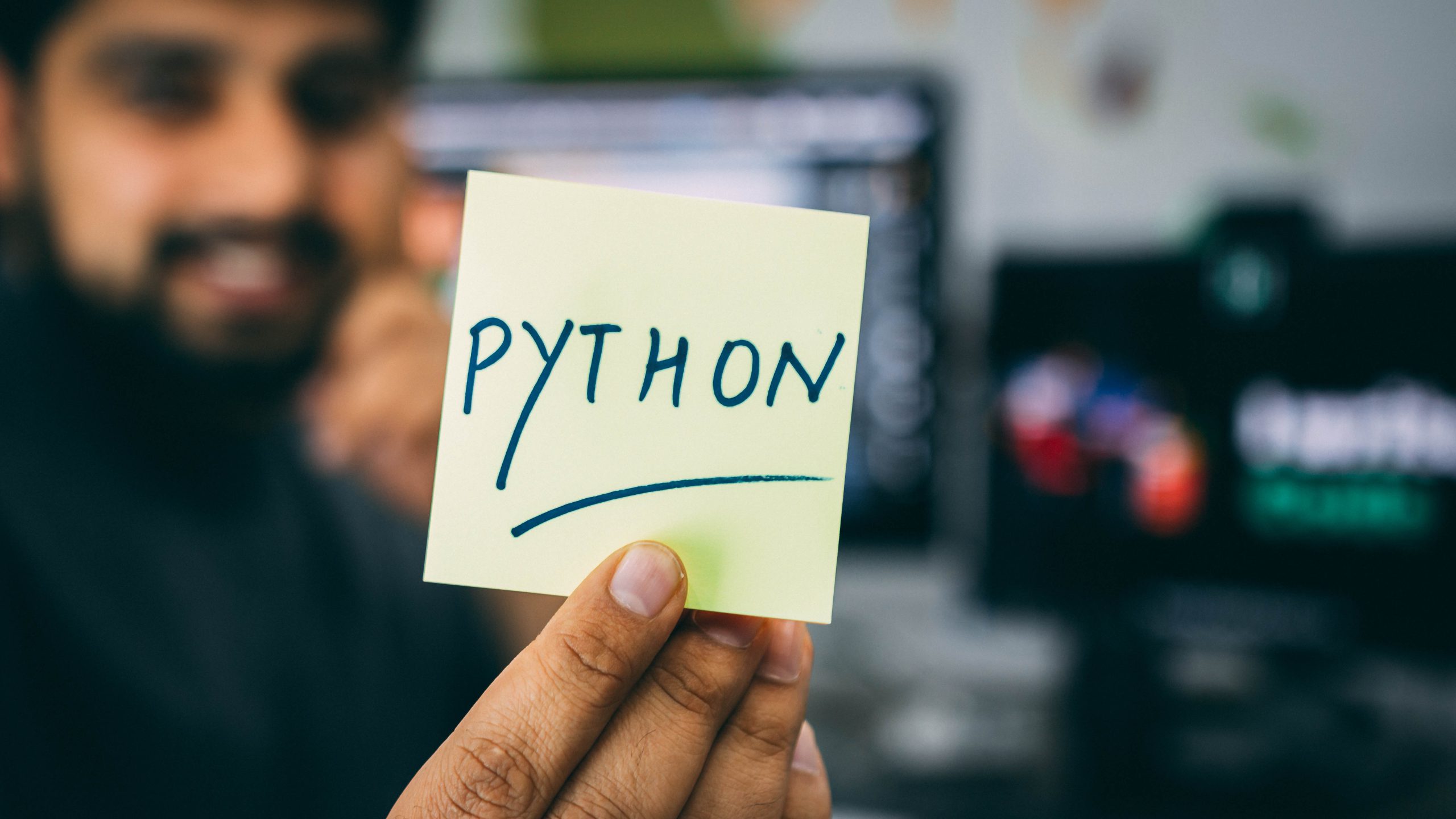5 min read
March 23, 2023
How Long Does It Take to Learn Python? A Comprehensive Guide for Modern Professionals
Python is a high-level, interpreted programming language that is becoming increasingly popular among modern professionals. Its ease of use, versatility, and powerful libraries make it a valuable skill to learn for anyone looking to enhance their career or side hustle.
Ready to learn Python online? ->Click here to enroll in our course<-
But how long does it take to learn Python? This is a crucial question to answer, as it can help you set realistic expectations and plan your learning journey accordingly. If you’re a modern professional looking to learn Python, you’re likely wondering how long it will take to become proficient in this skill. In this comprehensive guide, we’ll explore the ins and outs of learning Python and provide you with a general estimate of how long it takes to become proficient.
So, whether you’re a complete beginner or an experienced programmer, read on to find out everything you need to know about learning Python and how long it takes to master this powerful language. By the end of this guide, you’ll have a better understanding of the time commitment involved in learning Python and be equipped with the knowledge you need to plan your learning journey effectively.
Table of Contents:
What Is Python and Why Should You Learn It?
Python is a high-level, interpreted programming language that was first released in 1991 by Guido van Rossum. Since then, it has become one of the most popular programming languages in the world, thanks to its simplicity, readability, and flexibility.
Python’s popularity is evident in its widespread use across various industries. For example, Python is a popular language for data science, where it is used for tasks such as data analysis, machine learning, and artificial intelligence. It’s also used in web development, where it is used for back-end development, server-side scripting, and web scraping. Additionally, Python is widely used in automation, where it can be used to automate repetitive tasks such as testing and deployment.
So, why should you learn Python? There are several benefits to learning this powerful language. Firstly, it can open up a wide range of job opportunities across multiple industries. In fact, Python is consistently ranked as one of the most in-demand programming languages by employers. Secondly, learning Python can lead to higher salaries, as professionals with Python skills are highly sought after. Finally, Python’s versatility and ease of use make it a great language for beginners who are new to programming. With its simple syntax and powerful libraries, Python is a great language to learn for both beginners and experienced programmers alike.
It can take anywhere from 6-12 months to become proficient in Python and land a job as a Python developer.
How Long Does It Take to Learn Python and Get a Job?
The time it takes to learn Python and get a job can vary depending on several factors. These factors include prior programming experience, learning style, and specific job requirements. However, on average, it can take anywhere from 6-12 months to become proficient in Python and land a job as a Python developer.
For beginners with no prior programming experience, it may take longer to learn Python. However, with consistent practice and dedication, beginners can expect to become proficient in the language within 6-12 weeks. Intermediate learners with some programming experience can expect to become proficient in 3-6 months, while advanced learners with extensive programming experience can expect to become proficient in 1-3 months.
It’s important to note that while learning Python is important, it’s not the only factor in landing a job as a Python developer. Other factors, such as a strong portfolio, relevant work experience, and networking skills, can also play a role in securing a job. However, learning Python is an essential step toward becoming a successful Python developer.

If you’re looking for an online platform to learn Python, Amphy is a great option. Amphy offers a variety of Python courses taught by experienced instructors who can guide you through the learning process. In addition, Amphy provides a supportive community of learners and instructors who can help you stay motivated and engaged as you learn.
Research shows that Python is one of the most in-demand programming languages in the job market. According to the TIOBE Index for March 2023, Python is currently ranked as the third most popular programming language, behind Java and C. Additionally, a study by Indeed found that job postings requiring Python skills have increased by 106% since 2018.
In conclusion, learning Python can take anywhere from a few weeks to several months depending on your prior experience and learning style. However, with consistent practice and dedication, anyone can become proficient in the language and land a job as a Python developer. Amphy is just one of the many resources available to help you achieve your goal of learning Python.
Is it Difficult to Learn Python?
Learning Python can seem daunting at first, especially if you’re new to programming. However, compared to other programming languages, Python is considered one of the easier languages to learn. Its simple syntax and readable code make it a great language for beginners, while its powerful libraries make it a favorite among experienced programmers.
Like any new skill, learning Python requires time and dedication. However, with the right resources and mindset, anyone can learn Python. Whether you’re learning for work or as a hobby, take your time and don’t be discouraged if you run into obstacles. Remember, practice makes perfect.
How Many Hours a Day to Learn Python?
The amount of time it takes to learn Python varies depending on the individual and their learning style. Some people may learn faster by dedicating several hours a day to studying, while others may prefer to learn at a slower pace. However, on average, it can take anywhere from 6-12 weeks to learn the basics of Python and become proficient in the language.
If you’re looking to learn Python, it’s important to create a study plan that works for you. Consider your current schedule and commitments, and try to dedicate a consistent amount of time each day or week to learning Python. This could range from 30 minutes to several hours, depending on your availability and learning style. Remember, the key is consistency and dedication. By setting a realistic study plan and sticking to it, you’ll be well on your way to mastering Python in no time.

Tips for Learning Python Efficiently
Learning a new programming language can be challenging, but with the right approach, it can also be rewarding. Here are some tips and tricks for learning Python efficiently:
- Set specific goals: Determine what you want to achieve by learning Python and set specific goals for yourself. This will help you stay motivated and focused as you learn.
- Practice regularly: Consistent practice is key to learning any new skill, including Python. Set aside regular time slots for practicing Python, and stick to your schedule as much as possible.
- Join online communities: Online communities, such as forums and social media groups, can be a great way to connect with other learners and get support and advice as you learn.
In addition to these tips, there are many resources available to help you learn Python. Some helpful resources include:
- Books: There are many Python books available, ranging from beginner-friendly introductions to more advanced topics.
- Online courses: Online courses, such as those offered by Amphy, can provide structured learning opportunities and expert guidance from instructors.
- Coding challenges: Websites like HackerRank and CodeWars offer coding challenges that can help you practice your Python skills and build your confidence.
At Amphy, we offer a range of Python courses taught by experienced instructors. Our courses are designed to be accessible to learners of all levels, and they cover a range of topics, from Python basics to more advanced topics like data analysis and machine learning.
One of the benefits of Amphy’s Python courses is that they are designed with modern professionals in mind. Our courses are flexible and can be accessed from anywhere with an internet connection, making them a great option for busy professionals who want to learn Python at their own pace.
In conclusion, learning Python efficiently requires a combination of dedication, practice, and access to helpful resources. By setting specific goals, practicing regularly, and joining online communities, you can improve your chances of success. And with resources like books, online courses, and coding challenges, you can make your learning journey even more rewarding. Amphy’s Python courses are just one of the many options available to help you achieve your goal of learning Python.
Conclusion:
In conclusion, learning Python can be a valuable skill for modern professionals looking to enhance their careers or explore new opportunities. This article has discussed the various uses of Python in different industries, the benefits of learning Python, and factors that can affect the time it takes to learn the language.
To learn Python efficiently, we recommend setting specific goals, practicing regularly, and joining online communities. There are also a variety of helpful resources available, such as books, online courses, and coding challenges. Amphy’s Python courses are a great option for those looking to learn Python online, with experienced instructors and a supportive learning community.
In summary, learning Python is a worthwhile investment of time and effort that can lead to increased job opportunities and higher salaries. Whether you are a beginner, intermediate, or advanced learner, there is no better time to start learning Python than now. Enroll in Amphy’s Python courses today and start your journey toward mastering this powerful programming language. How long does it take to learn Python? With dedication and practice, you can become proficient in Python in a matter of months.
Related Content:
- Data Analytics Definition and Overview for Everyone
- Python Tutor: How a Python Tutor Can Help You Learn Python Programming
- How to Run a Python Script: A Complete Guide
- When Was Python Created: History of Python
Meet Amphy
The largest marketplace for live
classes, connecting and enriching
humanity through knowledge.
Related Articles